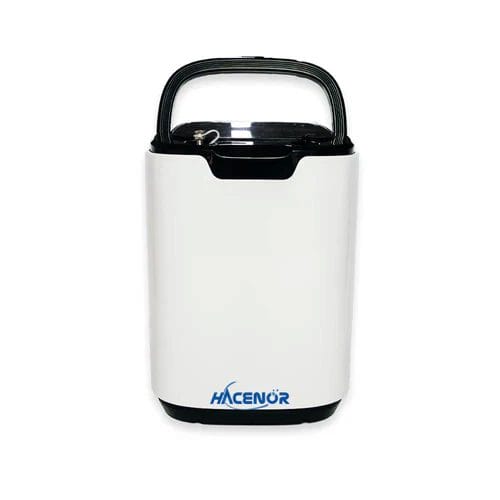Short-term care insurance, or recovery care insurance, is a type of policy that can help you temporarily pay for senior care services.

Short-term care insurance (STCi) is an essential financial tool that provides coverage for individuals who require temporary care services. Also known as recovery or post-hospitalization insurance, short-term care insurance offers protection against the high costs of short-term care needs. Here, we will delve into the details of short-term care insurance, including its purpose, cost, benefits, and more.
Understanding short-term care insurance
Short-term care insurance differs from long-term care insurance (LTCi) in terms of coverage duration and scope. While long-term care insurance is designed to cover extended care needs typically beyond 90 days, short-term care insurance provides coverage for shorter periods, usually up to one year. Short-term care insurance acts as a bridge between traditional health insurance and long-term care insurance, ensuring that individuals receive the necessary care during recovery or rehabilitation periods.
Situations where short-term care insurance is a good solution
Consider a scenario where an individual undergoes surgery and requires temporary assistance with daily activities. Short-term care insurance can cover in-home care, rehabilitation services, and even short stays at nursing facilities, easing the financial burden during recovery. It is an ideal solution for individuals who may not require long-term care but still need support for a limited period.
The best time and where to buy short-term care insurance
Short-term care insurance can serve a very helpful role in your health insurance coverage plan. Although there is no “perfect time” to buy STCi, there are quite a few situations where buying a short-term care insurance plan can be incredibly beneficial.
Oftentimes, those who have been declined long-term care insurance or those who cannot afford it may find that STCi is a great alternative. Additionally, those looking for coverage during the elimination period (the period of time you have to wait before your long-term care insurance kicks in) often find a lot of value in short-term care insurance.
Qualifying expenses covered by short-term care insurance
Short-term care insurance covers a range of qualifying expenses. Some expenses that may be covered with STCi include:
- •Rent at facilities.
- •Home care services.
- •Home health care services.
- •Skilled nursing care.
- •Therapy services.
These expenses are designed to support individuals during their recovery and rehabilitation processes.
Benefits and limitations of short-term care insurance
When making a claim, the amount of money accessible through short-term care insurance benefits depends on the specific policy and its coverage limits. Some policies may have a daily, weekly, or monthly limit for benefits. Short-term care insurance policies generally offer flexibility regarding benefit duration, allowing individuals to choose a coverage period that aligns with their expected recovery timeline. Additionally, short-term care insurance can be used alongside long-term care insurance policies, providing complementary coverage during different phases of care.
Short-term care insurance availability
Quite possibly, the most important thing to note is that short-term care insurance is not available for everyone. Although there are plenty of insurance companies that offer this type of insurance, there are many states that do not allow them to issue it. As of January 2022, according to the American Association of Long-Term Care Insurance, you will not be able to get short-term care insurance if you live in California, Minnesota, Florida, New York, Vermont, New Hampshire, Connecticut, or Massachusetts.
Pros and cons of short-term care insurance
While short-term care insurance sounds like a great option, it’s not for everyone. As with anything in life, there are both benefits and drawbacks to short-term care insurance. To help you get a better understanding of them, we’ve put together a list of the most prominent pros and cons of STCi below:
Pros:
- •Provides immediate coverage for short-term health care needs.
- •Offers flexible benefit durations, so you can tailor the perfect policy to your unique situation.
- •Acts as a bridge between traditional health insurance and long-term care insurance.
- •Eases financial burden during recovery periods.
Cons:
- •STCi plans typically only have $100 to $200 per day in coverage, which may not be enough for some.
- •Short-term care plans are typically only good for one year or less.
- •STCi isn’t available in a few states, including some of the most populous states.
Cost of short-term care insurance
As with any insurance, the cost of short-term care insurance will be based on your situation, including factors like your age, health status, coverage limits, and coverage duration. Given the shorter-term nature of STCi, it’s often much cheaper than long-term care insurance. In most cases, you can expect to pay between $65 and $300 per month for $150 per day’s worth of coverage, depending on your age and the type of care you wish to receive.
Applying for short-term care insurance and accessing your benefits
The application process for STCi involves completing an application form, providing relevant medical information, and undergoing underwriting. Insurance carriers assess your health condition and may require medical exams or records to determine eligibility and premium rates.
To make a claim with STCi, you must contact your insurance carrier and provide documentation, such as medical records and bills, to support your claim. The carrier will review the information and, if approved, provide you with the benefits outlined in your policy.
Triggers for claiming STCi benefits may include hospitalization, surgery, rehabilitation needs, or recovery from an illness or injury. Each policy will specify the qualifying events or conditions that allow you to make a claim.
The duration of claimable benefits with STCi varies depending on the policy. Some policies offer benefits for up to 360 days, allowing individuals to receive care during the necessary recovery period.
Wrapping it up: Why should you consider a short-term care insurance policy?
Short-term care insurance can be a valuable solution for individuals who require temporary care and support during recovery or rehabilitation. This may make short-term care insurance a great addition to your health insurance coverage plan. Before you buy a policy, you should consult with a reputable insurance broker. A reputable broker will help get you the best policy for your unique wants and needs.








